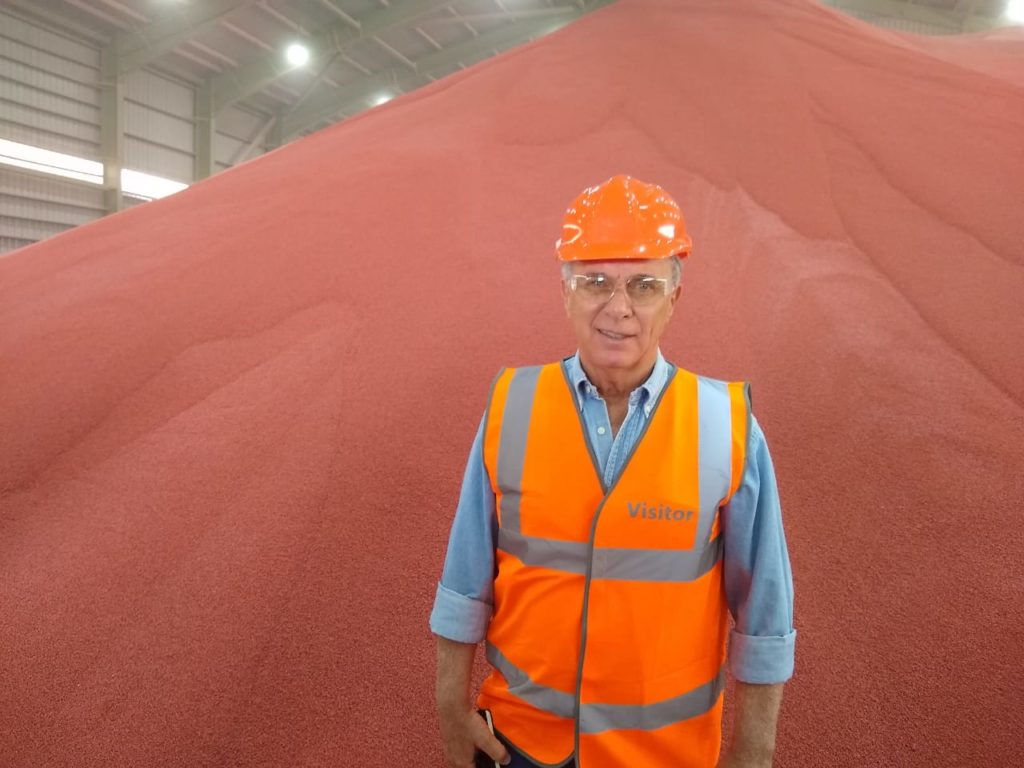Amman – Serving the Brazilian market is at the heart of the expansion plan of the Arab Potash Company (APC), a Jordanian potash producer. During a visit by the Brazilian minister of Agriculture, Livestock, and Food Supply, Marcos Montes, to the company this Saturday (7), APC executives announced a plan to increase exports, open a branch office, and establish production operations in the country.
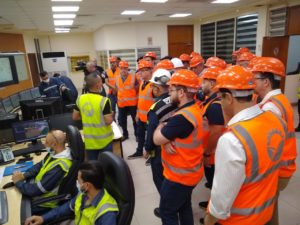
Accompanied by an agribusiness delegation, the minister arrived this Friday (6) evening in Jordan as part of a mission to three Arab countries to seek alternatives for supplying fertilizers to Brazil. In addition to Jordan, Montes will also visit Egypt and Morocco in the coming week. The Arab Brazilian Chamber of Commerce (ABCC) participates in the mission.
Arab Potash is the only potash producer in the Arab countries and already supplies Brazil. The company started exporting to the Brazilian market in 2019, with a volume of 42,000 tonnes, climbing to 154,000 tonnes in 2020 and 138,000 tonnes in 2021. According to the company, in the first quarter of 2022, 91,000 tonnes were shipped, with the prospect of reaching 300,000 tonnes by the end of the year.
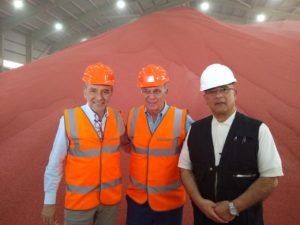
“We seek to increase our production and mainly supply the Brazilian market,” APC president and CEO Maen Nsour told the Brazilian delegation. Based on the expansion in production, the Jordanian company intends to sell 500,000 tonnes to Brazil in two years and reach 1.2 million tonnes by 2026, said Nsour to the ANBA report.
Currently, Brazil imports 95% of the potash it consumes, 12 million tonnes. The major international suppliers of the product to the Brazilian market were Russia, Canada, and Belarus. The Russia-Ukraine war, however, has generated uncertainties concerning supply. Faced with this scenario, the Brazilian federal government launched the National Fertilizer Plan, seeking alternatives, including fostering domestic production.
Arab Potash in Brazil
Arab Potash, in addition to increasing exports to Brazil, intends to open a branch office in the country by the end of this year. “So we will have three offices, in China, India, and Brazil,” Nsour told the delegation. Plans to have a production plant in Brazil are aimed at two years from now. “We will increase our exports to Brazil more and more. Later, we will think about investing in Brazil, building fertilizer plants,” revealed the company’s CEO.
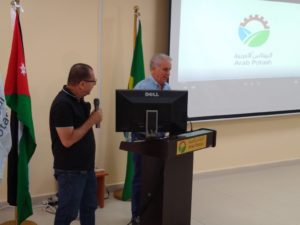
Minister Marcos Montes was enthusiastic about the announcements. “The first news I heard here made me very happy, the investment from companies like this in Brazil, but today we need to strengthen the relationship, and we can import more potash from Jordan,” he said, making himself available to help in the office opening. He clarified the government does not buy potash, but it is an instrument for cooperatives and companies to negotiate.
The APC works with the extraction of potash from the Dead Sea. The company produces 2.6 million tonnes of potash a year, but the most significant volume is not granulated red, most imported by Brazil. However, production of the fertilizer of highest interest to the Brazilian market has been growing at the APC, from 69,000 tonnes in 2019 to 381,000 tonnes last year. The goal is to reach 1.2 million tonnes of granulated red potash by 2023, according to Nsour.
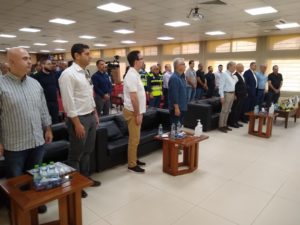
In a presentation to the delegation, the APC CEO made clear there is a strong tendency for a large part of the increase in production to be directed to the Brazilian market. “We are studying international demand, especially Brazil,” said Nsour. He also pointed out that investments in the current production of red potash had Brazil as the primary motivation, and the company will invest in quality to meet the requirements of importers in the country.
The executive also spoke about the support from the Jordanian government for potash trade with Brazil through King Abdullah II and the Jordanian Ministry of Agriculture. In addition to the company’s CEO, board member Shehadah Abu Hdaib also spoke to the Brazilians, highlighting the excellent relationship between Brazil and Jordan and the willingness to collaborate on fertilizers. “We will do everything to supply the Brazilian fertilizer market,” he said.
Partnership in food security
During his visit to the company, Minister Marcos Montes spoke to Jordanians about the prospects for agricultural production in Brazil, which could reach close to 300 million tonnes this year, and the importance of supplying fertilizers for the country to continue exporting food to the world. He said there are great expectations of increasing imports of potassium from Jordan and invited Jordanians to work together with Brazil for food security. “It is our responsibility, Brazil’s, but it is also yours, potash producers,” said the minister.
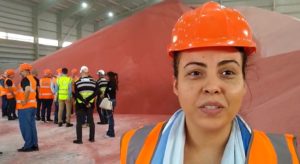
The Brazilian ambassador to Jordan, Ruy Amaral, told ANBA that the minister’s visit would be a milestone in the rapprochement between Brazil and Jordan. “Brazil is a country very rich in water – which is one of the reasons for our success as an exporter of commodities – but poor in fertilizers. On the other hand, Jordan has water shortage issues, though it is very rich in fertilizers, with large phosphate reserves, producing high-quality potash. We have everything to make a mutually beneficial partnership, taking Jordanian fertilizers to Brazil and bringing back water in the shape of agricultural products,” he said.
The ABCC’s director of Institutional Relations, Fernanda Cândido Baltazar, also sees the rapprochement as valuable for both countries and believes the mission will be exceptionally fruitful. “The Ministry of Agriculture’s mission to the Arab countries reinforces the strategic importance of this market for Brazil, and we kicked off in the best possible way on a technical visit to the APC, which has Brazil as an important market and seeks to expand more and more,” she said to ANBA.
Mission
In addition to Minister Marcos Montes, other representatives of the Brazilian Ministry of Agriculture, Livestock, and Food Supply (MAPA) are participating in the mission, including the secretary of Commerce and International Relations, Jean Marcel Fernandes; secretary of Innovation, Sustainable Development, and Irrigation, Fernando Camargo; Program director, Luis Eduardo Pacifici Rangel; and Technical advisor, Fabiano Maluf Amui.
The president of the Brazilian Agricultural Research Corporation (Embrapa), Celso Moretti, and the director for Strategic Projects of the Secretariat of Strategic Affairs of the Brazilian Presidency of the Republic, Bruno Caligaris, are among the other government authorities in the delegation, which also includes representatives of certifier Cdial Halal, BRF, the Brazilian Association of Animal Protein (ABPA), the Brazilian National Confederation of Agriculture and Livestock (CNA), the Organization of Cooperatives of Brazil (OCB), and Consolata Agroindustrial Cooperative (Copacol).
Here’s more on this:
Translated by Elúsio Brasileiro



